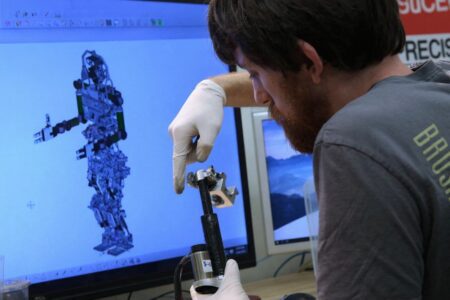
When studying abroad, nothing beats knowing that you’re on a path to securing a stable career with great financial success.
Take Canada, for example. Top-ranked universities, a welcoming environment with friendly locals, and overall, an excellent quality of life with accessible healthcare.
To achieve that, some start out by looking into the highest paying degrees in Canada.
But it’s not all sunshine and rainbows.
Recent changes for Canada
It’s no secret that Canada is a top study abroad choice.
The country hosted more than 1 million new international students in 2023, adding to the millions of existing foreign talent and holders of temporary work permits already studying and working in Canada.
This prompted the Canadian government to introduce a temporary two-year cap in November 2024 to curb housing and job shortages, looking to cut the number of international students coming to the country by 35%.
There is one silver lining, though — the cap will not apply to international students who are applying for master’s and PhD programmes.
So if you’re planning to still go abroad, don’t strike Canada out just yet. The country is still in need of skilled professionals and foreign talent to supplement its ageing population and ensure economic growth.
But which among the thousands of jobs pays the most? Let’s take a look.
 The average salary of surgeons in Canada can go up to 279,646 Canadian dollars per year.
The average salary of surgeons in Canada can go up to 279,646 Canadian dollars per year.
8 highest paying degrees in Canada
Salaries for these roles are sourced from employment sites like Indeed.
1. Surgeon
- Average salary for surgeon: CA$326,752 per year (US$235,857)
Naturally, specialised medical degrees are known as some of the highest paying degrees in Canada.
Looking at the local labour market needs, many provinces and territories in Canada require physicians and surgeons to address the needs of a rapidly ageing population.
The shortage of trained medical professionals is expected to continue until at least 2031, even accounting for new medical graduates and foreign physicians immigrating to Canada.
To become a surgeon in Canada, you’ll need to graduate with a medical degree and complete four to five years of residency, followed by two years of studying a surgical speciality.
 Director of marketing at Mercedes-Benz Marion Friese on court for the coin toss prior to a match between Tommy Paul of Team World and Casper Ruud of Team Europe during day two of the Laver Cup at Rogers Arena on September 23, 2023 in Vancouver, British Columbia.
Director of marketing at Mercedes-Benz Marion Friese on court for the coin toss prior to a match between Tommy Paul of Team World and Casper Ruud of Team Europe during day two of the Laver Cup at Rogers Arena on September 23, 2023 in Vancouver, British Columbia.
2. Marketing
- Average salary for chief marketing officer: CA$158,829 per year (US$114,646)
In today’s online world, digital marketing is one of the best methods to expand the horizons of a business across borders.
While plenty of marketing roles exist, a chief marketing officer is considered one of Canada’s highest paying roles.
They oversee a company’s marketing strategies and initiatives, all with the goal of reducing costs while growing revenue.
A chief marketing officer should be aware of online and offline marketing tactics, such as social media, print advertising and Google ads.
Most of this knowledge can be acquired through a degree in marketing, communication, business administration or a related field.
3. Pharmacist
- Average salary for a pharmacist: CA$116,658 per year (US$84,206)
Pharmacists play a crucial role in the Canadian healthcare industry and can earn lucrative salaries, particularly in hospitals or pharmaceutical outlets and companies. Canada’s pharmaceutical industry has a 2.2% share of the global market, making it the eighth largest globally.
This high paying degree in Canada will allow you to specialise in various areas, such as clinical pharmacy, hospital pharmacy, or research and development, which then allows you to tailor your career paths to your interests and strengths.
Metropolitan areas like Toronto, Montreal and Vancouver have particularly big pharmaceutical industries, so working there could be a viable option for even higher salaries.
As this profession is in-demand, it also ensuring better employability prospects post-graduation for international students, and the possibility of earning their PR.
 British-Canadian cognitive psychologist and computer scientist Geoffrey Hinton, known as the “godfather of AI” speaks with Nick Thompson of The Atlantic (off frame) during the Collision Tech Conference at the Enercare Centre in Toronto, Ontario, Canada, on June 28, 2023.
British-Canadian cognitive psychologist and computer scientist Geoffrey Hinton, known as the “godfather of AI” speaks with Nick Thompson of The Atlantic (off frame) during the Collision Tech Conference at the Enercare Centre in Toronto, Ontario, Canada, on June 28, 2023.
4. Computer science
- Average salary for software engineering manager: CA$146,972 per year (US$106,088)
The Canadian Government’s Job Bank predicts that there will be a shortage of computer software engineers over the period of 2022 to 2031 at the national level, making them all the more important in the Canadian job market.
They lead the development and creation of software programmes or applications.
A software engineering manager is also the point of contact for different departments to ensure the application functions as intended.
Since they need a solid technical understanding, a degree in system analysis, business administration, computer science, or engineering will greatly aid those who wish to take on this role.
 Corporate controller performs all the major accounting functions for a company, including budgeting, invoicing, accounts receivable and accounts payable.
Corporate controller performs all the major accounting functions for a company, including budgeting, invoicing, accounts receivable and accounts payable.
5. Accounting
- Average salary for corporate controllers: CA$114,417 per year (US$82,589)
Corporate controllers handle the financial well-being of an organization.
They perform all the major accounting functions for a company, including budgeting, invoicing, accounts receivable and accounts payable.
Corporate controllers are heads of the financial department and report to a chief financial officer.
They often hold accounting certifications such as Chartered Accountant, Certified Management Accountant or Certified General Accountant.
A bachelor’s or master’s degree in business administration, economics, commerce or a related field may be required.
6. Nuclear engineering
- Average salary for a nuclear engineer: CA$139,065 per year (US$100,380)
Nuclear engineering is among the most valuable university degrees that lead to high paying jobs in Canada.
As a discipline requiring high levels of specialised proficiency in nuclear energy, professionals in this field are the best paid in the labour market.
Nuclear engineering graduates deal with developing and applying equipment that harnesses nuclear energy. They handle everything from designing operational procedures to constructing, operating, and maintaining nuclear power plants.
Nuclear engineers are also specifically trained in using radioactive material in the industry for energy and in the medical field for medical imaging instruments, such as positron emission tomography scanners and cyclotrons for treating cancerous tumours.
 Actuarial science studies involve the use of statistical and mathematical techniques to develop deterministic models for assessing risk.
Actuarial science studies involve the use of statistical and mathematical techniques to develop deterministic models for assessing risk.
7. Actuary
- Average salary for an actuarial manager: CA$158,545 per year (US$114,474)
If the term actuary doesn’t ring a bell, don’t worry.
Behind this mysterious term is a well-kept secret on the Internet: actuary management is one of the highest paying degrees in Canada.
It has a wide range of applications in different fields, from the insurance and financial sectors to programming and even the health sector.
Actuarial studies involve the use of statistical and mathematical techniques to develop deterministic models for assessing risk.
Applying actuarial methods in the analysis of risk enables actuaries to make fairly accurate predictions of uncertain future financial events.
The product of this analysis serves as a strong base upon which decisions in sectors such as the insurance and pension sectors are made.
This makes this a very lucrative discipline and a valuable degree for any student looking to secure their financial future.
8. Mining and mineral engineering
- Average salary for a mining engineer: CA$124,430 per year (US$89,816)
Canada’s mining sector is one of the largest globally and plays a significant role in supporting the national economy.
Minerals, metals, gas, and oil have a wide range of applications, whether it’s in industry, construction, or for making jewellery and other ornaments.
Mining and mineral engineers explore and scout for materials, design the appropriate extraction methods, oversee the mining process, and coordinate the transportation of the extracted products.
They also design and develop the equipment used in mining for optimal efficiency and ensure that safety and environmental regulations are adhered to throughout the mining process.
As technology advances and more efficient equipment comes into the market, mineral exploration activities will only increase — resulting in mining and mineral engineering graduates having more opportunities for better pay.
Depending on the mineral you choose to specialise in, the specifics of your job and day-to-day routine can vary.
Disclaimer: This article was last updated on April 29, 2025.










